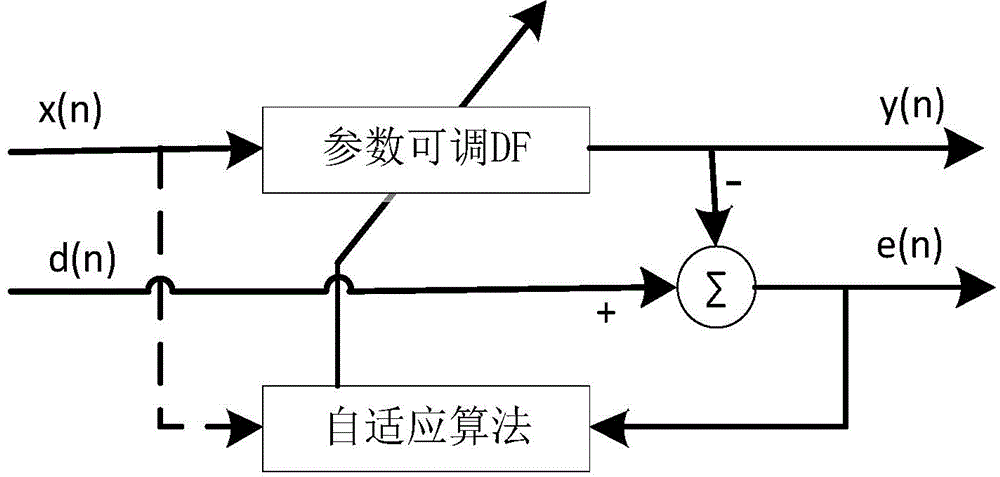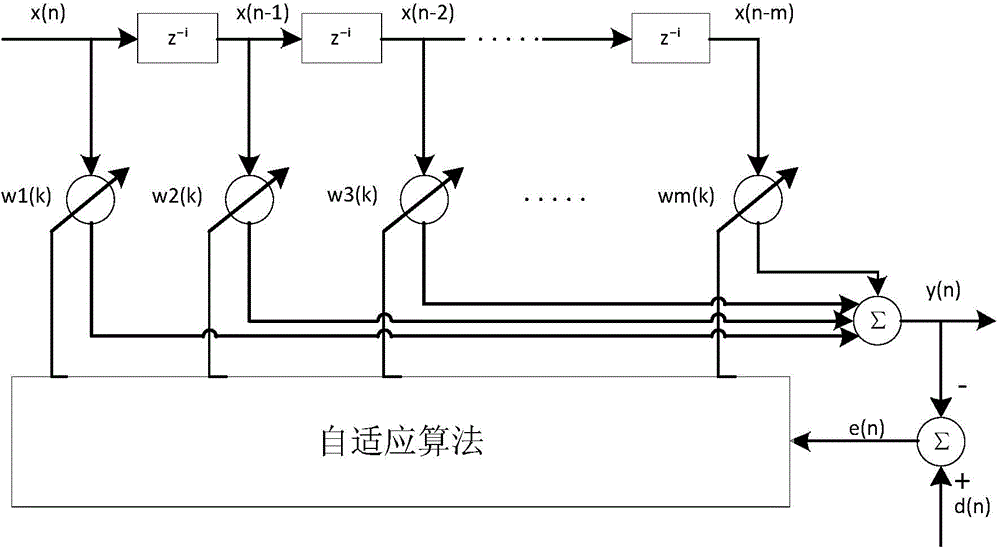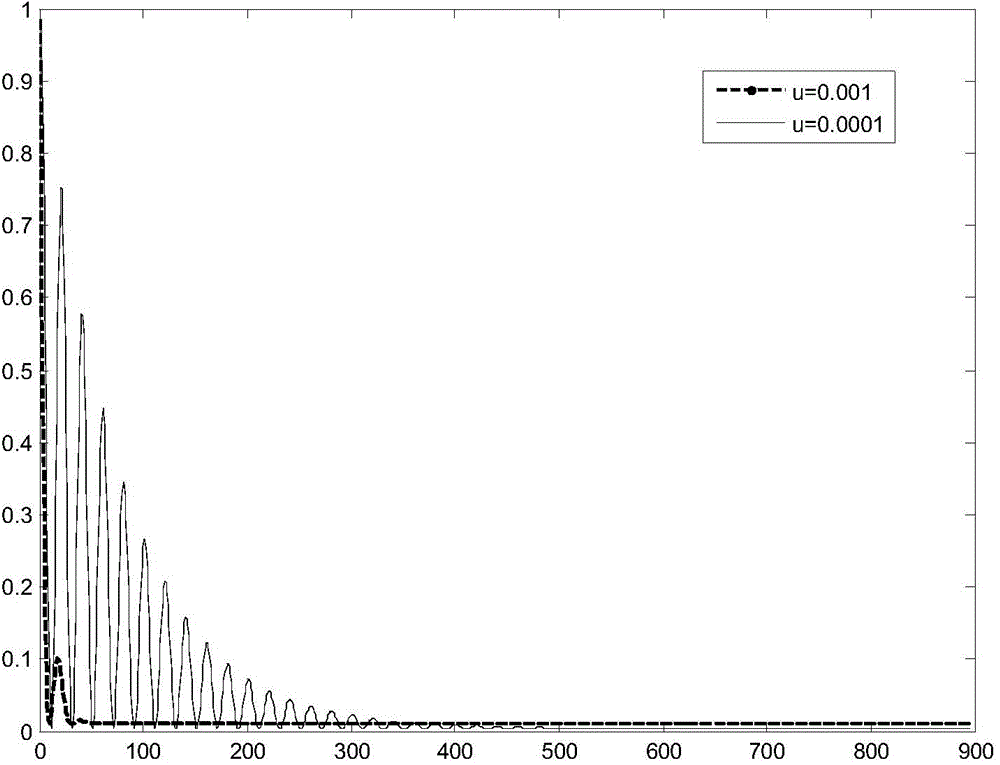Gradient variable-step LMS self-adaptation filtering method
A technology of adaptive filtering and variable step size, applied in the direction of adaptive network, impedance network, electrical components, etc., can solve the problem of LMS algorithm steady-state error, algorithm convergence speed is difficult to take into account, etc., to reduce steady-state error and improve convergence. speed, the effect of reducing the influence of noise
- Summary
- Abstract
- Description
- Claims
- Application Information
AI Technical Summary
Problems solved by technology
Method used
Image
Examples
Embodiment
[0048] In the simulation, the reference signal is a sinusoidal single input signal s=a*sin(0.05*pi*t), and zero-mean Gaussian white noise is added to the sinusoidal signal as the system input signal SNR=10dB; filter order m=128; sampling Number of points N=1000, drawing data is e 2 The result after Monte Carlo averaging of 100 times. Such as image 3 Shown, for the LMS algorithm when μ=0.001 and μ=0.0001, the convergence speed of the algorithm, it can be seen that the step size algorithm convergence speed is fast and the steady-state error is large, and the step size is small; the smoothing parameters of the algorithm proposed by the present invention are respectively: β=0.999, γ=1e-7, μ(0)=0.1. Figure 4 It is a comparison chart of the convergence speed curves of the GVSS-LMS algorithm and the LMS algorithm. It can be seen that the GVSS-LMS algorithm has a faster convergence speed and a lower steady-state error.
PUM
 Login to View More
Login to View More Abstract
Description
Claims
Application Information
 Login to View More
Login to View More - R&D
- Intellectual Property
- Life Sciences
- Materials
- Tech Scout
- Unparalleled Data Quality
- Higher Quality Content
- 60% Fewer Hallucinations
Browse by: Latest US Patents, China's latest patents, Technical Efficacy Thesaurus, Application Domain, Technology Topic, Popular Technical Reports.
© 2025 PatSnap. All rights reserved.Legal|Privacy policy|Modern Slavery Act Transparency Statement|Sitemap|About US| Contact US: help@patsnap.com



